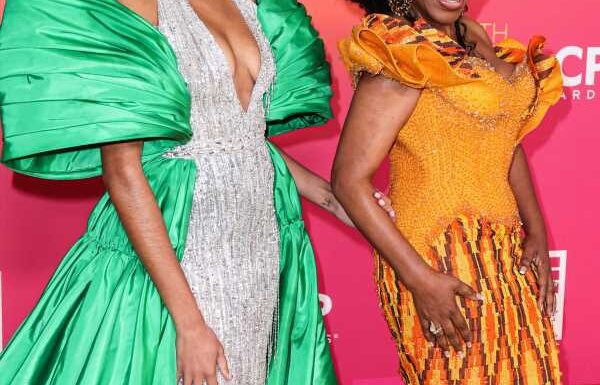
This story is heavy, but I think it’s an important one. At a charity event last week, Sheryl Lee Ralph talked to People Magazine about a deeply traumatic period in her life 10 years back when her son had been mugged and shot shortly after suffering a brain-altering car accident. Her daughter Ivy-Victoria told her she needed to go to therapy and Sheryl said no because she didn’t believe she was traumatized. Ivy-Victoria was able to convince her that she needed help when she pointed out that “the more you deny it, the more you need it.” Sheryl then explained that as a “child of integration,” it was hard for her to ask for help from other people. But therapy helped her and now she’s stronger because of it.
Sheryl Lee Ralph isn’t afraid to seek out help when she needs it.
The Abbott Elementary star, 66, recently opened up about a harrowing period in 2013 when her son Etienne, 31, was mugged and stabbed after being involved in a brain-damaging car accident.
With the scary moment now 10 years behind them, Ralph is getting candid about how she was able to push past that troubling time — and the important role her daughter Ivy-Victoria, now 28, played at the time.
“My daughter said to me, ‘Mommy, you need therapy because you have been traumatized,’” she told PEOPLE while attending Project Angel Food’s “Rise to the Challenge” ceremony on Thursday. “And I was like, ‘No, I haven’t.’ And she said, ‘See? You’re the kind of person that really needs it.’ The more you deny it the more you need it. And I was just like, ‘Wow.’”
The actress revealed that her experiences as a “child of integration” had made her adverse to seeking out help from others. She also explained how she was “set up” to take on her problems with “slings and arrows.”
“You’re literally set up to be hurt by the forces that come for you, and I think that I’ve been in that position my whole life, that it’s like, ‘Okay, what’s one more back stab?’” Ralph said of her past and how she’s learned from her experiences. “But we will get through it, because I have gotten through it in the past. And I think in some way, I’ve been made stronger by it all.”
[From People]
I’m so glad her daughter got through to her and that Sheryl got the help she needed. It sounds like she has found healing, but what happened to her son was horrifying and would traumatize any mom. This story also showcases an issue that is important to me: the barriers that exist to accessing therapy. What Sheryl is describing sounds like a combination of being in denial (which is a normal coping mechanism for trauma), as well as the effects of systemic racism. When she references being a “child of integration,” I think that’s what she’s talking about. It makes sense that she wouldn’t trust outside help. It’s also challenging to find therapists who are culturally competent or understand how racism can create trauma or compound existing trauma. And therapy is still stigmatized in many communities. I was in therapy for a long time, and it transformed me. I had some roadblocks to accessing care, including insurance malarkey. However, I am also privileged. As a white woman with parents who could help me pay for it, it was still relatively easy for me to access therapy. But therapy should be accessible to everyone, no matter their background, and there are way too many things standing in the way right now. One organization that does great work around this issue is The Loveland Foundation, which provides free culturally competent therapy sessions for Black women and girls. If you don’t know about them, check out their website and their annual report.
Embed from Getty Images
https://www.instagram.com/p/CsOV8lgOquS/
Source: Read Full Article
